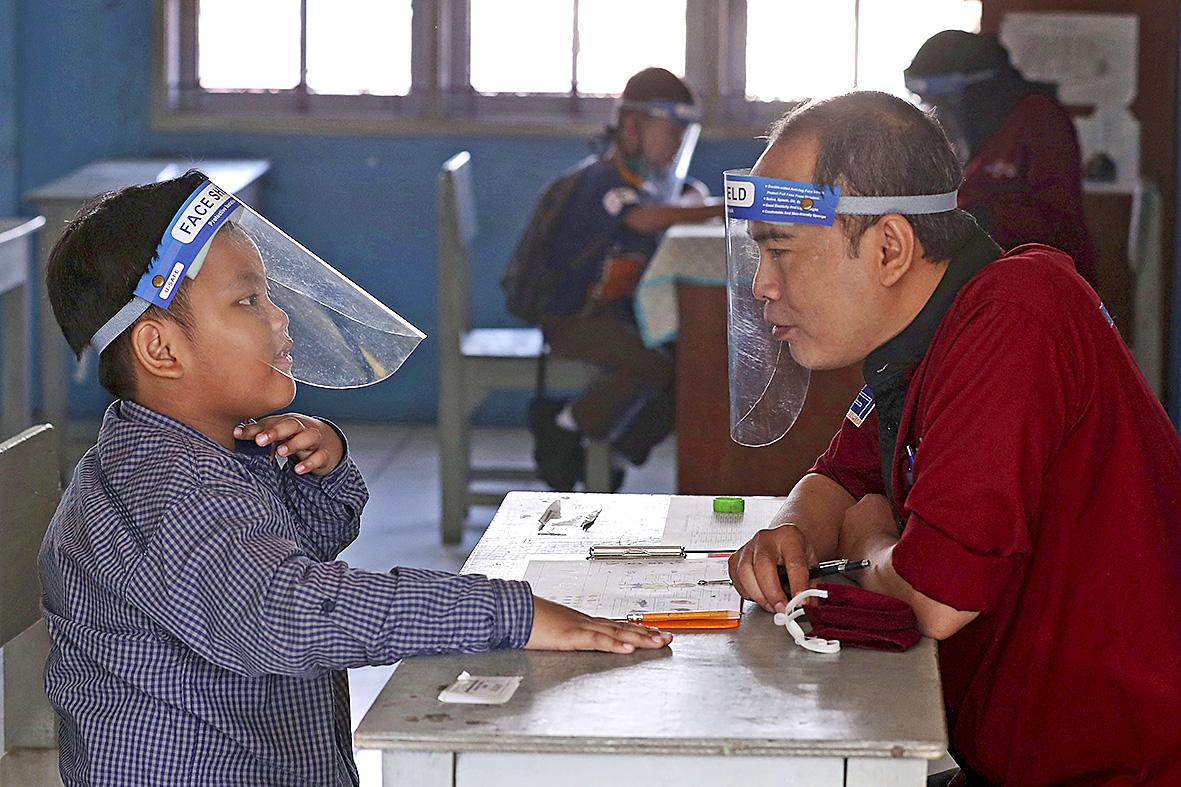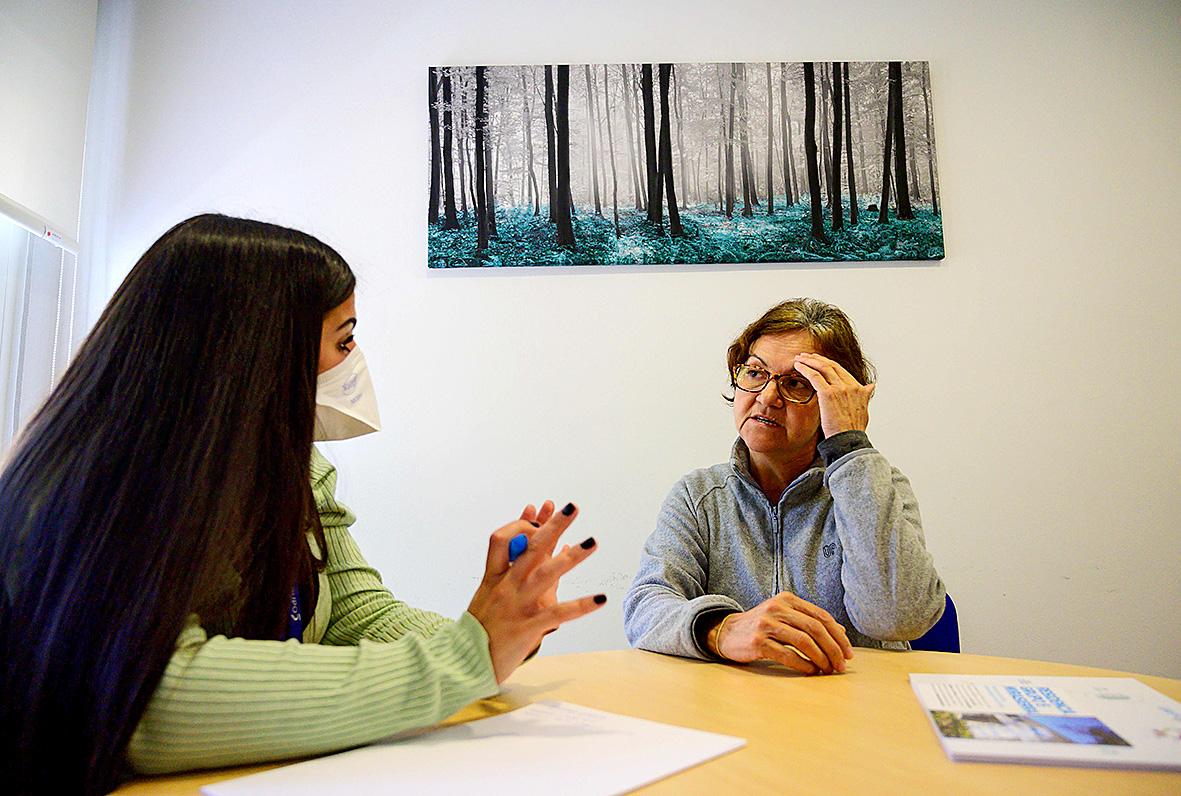“Talking therapies” services run by the National Health Service (NHS) will be overwhelmed in the autumn when almost 500,000 people who did not get treated during the lockdown finally seek help, according to a major therapy provider. The warning comes as teachers predict a wellbeing crisis among children when schools return full-time in September.
Analysis by Ieso Digital Health claims there will be “an explosion” this autumn in the number of people being referred by their doctor for treatment for anxiety, depression and obsessive compulsive disorder. The sharp rise in people suffering psychological conditions during the pandemic will leave England’s 54 specialist NHS mental health trusts struggling to cope.
The NHS has treated far fewer patients than usual since March under its Improving Access to Psychological Therapies (IAPT) program, which usually gives people face to face counseling. Before COVID-19 struck about 150,000 people a month were referred to IAPT services in England, either by their doctor or by seeking help directly themselves.

Photo: AP
When lockdown began many NHS services were suspended and many people either became afraid to access care as normal or stayed away in order not to bother the NHS. Research by Ieso shows that in April — the first full month of lockdown — fewer than 60,000 referrals were made.
It estimated that by the end of September just over 470,000 fewer people than would have been expected will have been referred since the start of lockdown. If all are referred for care in October, when IAPT services reopen, then that would leave services facing over four times the usual number of referrals.
“One reason referrals to IAPT dropped during the pandemic is that people who were at home because of the lockdown were really worried about having a phone or video consultation rather than a face to face appointment,” said Sarah Bateup, Ieso’s chief clinical officer, who is also an experienced cognitive behavioral therapist.

Photo: AFP
“Other people didn’t seek a referral because they didn’t want to go to their [doctor], or decided not to make a fuss because the NHS was so busy. Others were more worried about COVID and keeping their family safe than they were about seeking treatment for anxiety, depression or OCD.”
Ross O’Brien, the digital innovation director at Central and North West London NHS Foundation Trust, one of the country’s biggest mental health trusts, said: “There is the real risk that the mental health impact of COVID-19 will be more than the physical effects of the virus.
This, coupled with the expected huge increase in IAPT referrals, means we are seeing a very worrying trend. Patient referral rates have been alarmingly low since lockdown across IAPT services in England. In London alone we have seen up to a 50 percent reduction in referrals in March and April,” he added.
NHS England dismissed Ieso’s analysis as “a back of the envelope calculation that relies on implausible assumptions and guesswork, which will almost certainly not turn out that way.
“No one is anticipating three months’ worth of referrals materializing in a single month, and referrals are already starting to catch-up with pre-COVID-19 levels, so it is simply wrong to state that they will stay down at the end of September and create a big backlog.”
A spokesperson stressed that services to help people with stress and anxiety have been available throughout the pandemic and that referrals have started to rise again recently.
Fears over a looming mental health crisis have also been raised in schools, with less than five percent of teachers expressing confidence that they will be able to effectively support an influx of vulnerable and traumatized pupils in September, according to research by the Chartered College of Teaching, the official professional body for the teaching profession.
Teachers reported that during the crisis, they were dealing with issues including domestic violence, death of students’ parents and grandparents and suicide, as well as needing to direct families to foodbanks and charities for support. In many cases, they said they felt isolated and ill-equipped to provide this advice.
The study also found that a third of teachers think the crisis has negatively affected the wellbeing of most or all of their students, while 98 percent thought at least some of their students had been affected by partial school closures and lockdown measures.
Clear concerns emerged for pupils with mental health issues, those living in poverty, students with special educational needs and those without internet access. Around 40 per cent are planning specific support for bereaved or traumatized students. The concerns are already shaping the response to a wider reopening of schools in September. More than half of teachers said their schools were considering how to help children make transitions to new classes, with 44 percent discussing curriculum changes.
The discussions with teachers revealed that school staff largely want to prioritize wellbeing and rebuilding relationships with students, preferring to allow more time for re-establishing friendships, talking about their experiences and doing outdoor exercise.
Alison Peacock, chief executive of the Chartered College of Teaching, said the findings painted “a worrying picture of the education landscape.”
She added: “The level of anxiety about pupils’ learning and wellbeing is deeply concerning.”

In late October of 1873 the government of Japan decided against sending a military expedition to Korea to force that nation to open trade relations. Across the government supporters of the expedition resigned immediately. The spectacle of revolt by disaffected samurai began to loom over Japanese politics. In January of 1874 disaffected samurai attacked a senior minister in Tokyo. A month later, a group of pro-Korea expedition and anti-foreign elements from Saga prefecture in Kyushu revolted, driven in part by high food prices stemming from poor harvests. Their leader, according to Edward Drea’s classic Japan’s Imperial Army, was a samurai

Located down a sideroad in old Wanhua District (萬華區), Waley Art (水谷藝術) has an established reputation for curating some of the more provocative indie art exhibitions in Taipei. And this month is no exception. Beyond the innocuous facade of a shophouse, the full three stories of the gallery space (including the basement) have been taken over by photographs, installation videos and abstract images courtesy of two creatives who hail from the opposite ends of the earth, Taiwan’s Hsu Yi-ting (許懿婷) and Germany’s Benjamin Janzen. “In 2019, I had an art residency in Europe,” Hsu says. “I met Benjamin in the lobby

April 22 to April 28 The true identity of the mastermind behind the Demon Gang (魔鬼黨) was undoubtedly on the minds of countless schoolchildren in late 1958. In the days leading up to the big reveal, more than 10,000 guesses were sent to Ta Hwa Publishing Co (大華文化社) for a chance to win prizes. The smash success of the comic series Great Battle Against the Demon Gang (大戰魔鬼黨) came as a surprise to author Yeh Hung-chia (葉宏甲), who had long given up on his dream after being jailed for 10 months in 1947 over political cartoons. Protagonist

A fossil jawbone found by a British girl and her father on a beach in Somerset, England belongs to a gigantic marine reptile dating to 202 million years ago that appears to have been among the largest animals ever on Earth. Researchers said on Wednesday the bone, called a surangular, was from a type of ocean-going reptile called an ichthyosaur. Based on its dimensions compared to the same bone in closely related ichthyosaurs, the researchers estimated that the Triassic Period creature, which they named Ichthyotitan severnensis, was between 22-26 meters long. That would make it perhaps the largest-known marine reptile and would